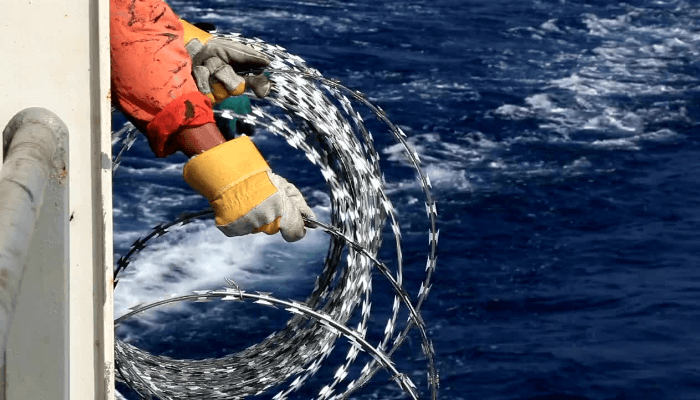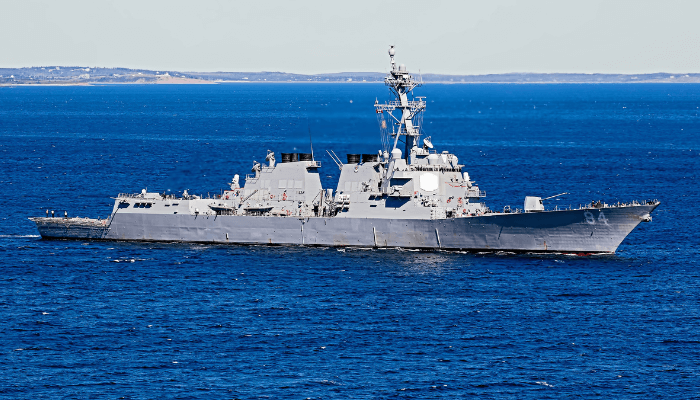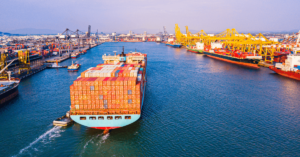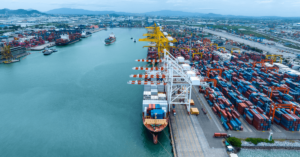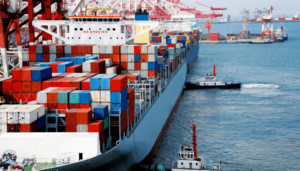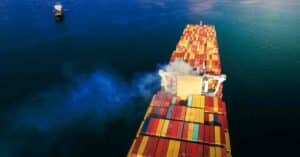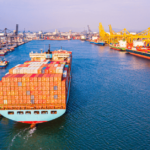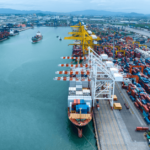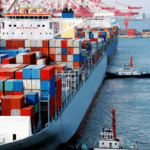Labour Rights of Seafarers in Piracy, Armed Robbery Against Ships and War Zones
Seafarers help seamlessly facilitate international trade and commerce and play a vital role in the global economy. Seafaring is a unique and highly skilled profession, affected by a distinct category of labour law as seafarers transit waters within and beyond the jurisdiction of multiple countries through their service.
However, while at sea, seafarers are vulnerable not only to natural calamities but are also confronted with maritime security threats, such as maritime piracy or armed robbery against ships or the consequences of ongoing conflict or war between states at sea. These circumstances warrant the awareness of seafarers of their labour rights under the prevailing laws applicable nationally and internationally.
This article reviews the existing labour rights of seafarers in cases of piracy, armed robbery, conflict or war affecting the maritime regions.
Maritime Labour Convention, 2006
The indispensable role of seafarers made their protection a crucial consideration for the sustenance of international trade and commerce. It became one of the reasons for the development of maritime law. As unrest in labour conditions increased in the early 20th century and the International Labour Organization was created, maritime labour standards were among the first to be developed.
Initially, seafarers’ rights were codified from customs and practices in several international instruments. However, in 2006, a significant development came through the ILO’s adoption of the Maritime Labour Convention [MLC].
The MLC consolidates numerous international maritime labour instruments adopted since 1920 and comprehensively lays down minimum labour standards for seafarers, including their employment, hours of work and rest, medical care, wages, welfare and social security protection. Presently, the MLC has strong state participation from 101 member countries.
Piracy and Armed Robbery against ships
Maritime piracy has affected seafaring nations since the use of maritime routes for trade. Piracy has been condemned as “hostis humanii generis” or an enemy of all humankind. It was the first crime against which States were empowered to exercise universal jurisdiction to prosecute its commission. To be precise, pirates can be attacked and killed without declaring war or formal hostilities.
Besides, the United Nations Convention on the Law of the Sea, 1982, [UNCLOS] vests an obligation on all States to repress piracy on the high seas or in any other place outside any state’s jurisdiction. Article 101 of UNCLOS states that “piracy consists of any of the following Acts:
(a) any illegal acts of violence or detention, or any act of depredation, committed for private ends by the crew or the passengers of a private ship or a private aircraft and directed:
(i) on the high seas, against another ship or aircraft, or persons or property on board such vessel or aircraft;
(ii) against a ship, aircraft, persons or property in a place outside the jurisdiction of any State;
(b) any act of voluntary participation in the operation of a ship or an aircraft with knowledge of facts making it a pirate ship or aircraft;
(c) any act of inciting or of intentionally facilitating an act described in subparagraph (a) or (b).”
Unlike piracy, armed robbery against ships is not defined under UNCLOS. According to the 2009 Code of Practice for the Investigation of Crimes of Piracy and Armed Robbery against Ships adopted by the International Maritime Organisation [IMO] in its Assembly Resolution A.1025(26), “Armed robbery against ships” “means any of the following acts:
1. any illegal act of violence or detention or any act of depredation, or threat thereof, other than an act of piracy, committed for private ends and directed against a ship or persons or property on board such a ship, within a State’s internal waters, archipelagic waters and territorial sea;
2. any act of inciting or intentionally facilitating an action described above.”
Accordingly, to constitute piracy or armed robbery against ships, the nature of the act must primarily be private. Legally, an act committed by a warship, government ship or government aircraft whose crew has mutinied and taken control of the vessel or aircraft is deemed to be executed by a private vessel or aircraft.
However, unlike piracy, armed robbery against ships occurs not on the high seas or the Exclusive Economic Zone [EEZ] but in a State’s internal waters, archipelagic waters and territorial sea, where the State enjoys sovereignty. Also, while piracy can involve aircraft, armed robbery involves only ships. The MLC also adopts these definitions in the recent amendments introduced in 2018.
These definitions also highlight that piracy and armed robbery against ships target persons on board ships, and hence, these offences endanger the lives of seafarers. Besides, pirates often take hostages to extort the payment of a ransom, and this adversely impacts seafarers.
This considers the provisions of the International Convention Against the Taking of Hostages, 1979, [Hostage Convention], which has 176 State parties. The Hostage Convention makes it a grave offence to attempt or act as an accomplice in hostage-taking and obliges State parties to make appropriate penalties.
Nevertheless, as a hostage or a victim held captive due to piracy or armed robbery, the seafarers are vulnerable, and their service on the ship is hampered. These circumstances not only build insecurity about seafarers’ lives but also about their wages and other rights. Although international law has laid staunch prohibitions on piracy and armed robbery against ships, it was only recently that a codified clarity on seafarers’ labour rights in such circumstances emerged.
As a relief, in such unprecedented circumstances, amendments were introduced to the MLC in 2018. It stated that wages and other entitlements due to seafarers shall continue to be paid during the entire period of captivity on or off the ship as a result of acts of piracy or armed robbery against ships and until the seafarer is released and duly repatriated. In case of death of a seafarer while in captivity, the wages and other entitlements due to that seafarer shall continue until the date of death.
Also, generally, there exists a time limit within which seafarers can claim their entitlement of repatriation under relevant national laws or regulations or collective bargaining agreements. However, this time bar is relaxed in case of a seafarer held captive on or off the ship due to acts of piracy or armed robbery.
War Zones or Armed Conflicts at sea
Seafarers are also vulnerable to security risks posed in the event of war or state conflicts at sea. Unlike the case of piracy or armed robbery at sea, war and armed conflicts by States at sea are not private acts but are carried out by state sanctions.
Under International Law, seafarers serving on board merchant ships and not as armed forces members are civilians. Any loss of their life, injury inflicted on them, or damage caused to their property in the war or armed conflict constitutes a war crime.
An immediate case study is the recent armed conflict between the Russian Federation and Ukraine, which surfaced seafarer welfare and safety concerns resulting from attacks aimed at commercial vessels and the stranding of various seafarers and the consequent effect on their vital supplies.
The Council of the IMO—a specialised agency of the United Nations responsible for the safety and security of shipping—held an extraordinary session early this year over the impact of shipping and seafarers on the situation in the black sea and the sea of Azov, resulting from Russia-Ukraine crisis.
In substance, this session upheld the key-worker status of seafarers to allow their movement without restrictions despite the situation and condemned the harassment of seafarers caught in this crisis. It prioritised their safe evacuation out of the conflict zone and for their return home, including by setting up humanitarian corridors where such return is restricted due to sea mines or other hazards. Notably, the session has reaffirmed the continuance of the existing rights of seafarers under the MLC concerning their access to wages.
The MLC does not apply to warships or naval auxiliaries. However, the MLC continues to apply in cases of seafarers serving on merchant ships bound for a war zone. Wars or armed conflicts at sea may impact seafarers’ ability to carry out their duties under their employment contracts. MLC considers seafarers’ vulnerability in this situation.
Although MLC does not define the term “war zone”, it relies on the relevant definition under national laws or regulations or seafarers’ employment agreements. It guides that, in case of a ship being bound for a war zone to which the seafarer does not consent to go, the seafarer should be entitled to repatriation if the seafarer’s employment agreement is terminated by the shipowner or by that seafarer for justified reasons. In such situations, a seafarer should also be entitled to repatriation in case of inability to carry out the duties under the employment agreement or where the responsibilities cannot be expected to be carried out in specific circumstances.
Further, to ensure that seafarers have non-discriminatory and easy access to shore-based welfare facilities, the MLC guides member States to consider the special needs of seafarers, especially when entering war zones, in respect of their safety, health and spare-time activities.
Unlike the case of piracy or armed robbery against ships, the MLC does not incorporate any special provision for the continued payment of wages or other entitlements to seafarers who are confronted with war zones or armed conflicts at sea. However, the absence of such specific provisions does not nullify the continuance of the already existing labour standards for seafarers serving on board merchant ships, including those concerning the regular payment of wages and other entitlements guaranteed under the MLC.
Nevertheless, including a special provision, which guarantees the continued payment of wages and other entitlements of seafarers affected or stranded in war zones, as in the case of piracy or armed robbery against ships, would assure a uniform interpretation by the implementing stakeholders.
Bottomline
In conclusion, it is reinstated that seafarers’ labour rights do not just disappear due to their unfortunate circumstances during captivity in piracy or armed robbery against ships or in cases of war or armed conflicts at sea. Although international law prioritises their safety, it also upholds the human and labour rights promised during their employment aboard ships.
Nevertheless, states must adopt a humane and pragmatic interpretation and implement the existing maritime labour standards to make it a reality.
You might also like to read
- Q&A: Rights of Seafarers to Arrest A Ship in Indian Port for Unpaid or Underpaid Wages
- Understanding Warehouse Safety and Occupational Risk
- 6 Benefits of Information Exchange in the Maritime Industry
- Top 7 Websites for Maritime Accident Investigation Reports and Case Studies
- IMO guidelines for the unwanted person onboard-Stowaway
Disclaimer: The authors’ views expressed in this article do not necessarily reflect the views of Marine Insight. Data and charts, if used in the article, have been sourced from available information and have not been authenticated by any statutory authority. The author and Marine Insight do not claim it to be accurate nor accept any responsibility for the same. The views constitute only the opinions and do not constitute any guidelines or recommendations on any course of action to be followed by the reader.
The article or images cannot be reproduced, copied, shared or used in any form without the permission of the author and Marine Insight.
Do you have info to share with us ? Suggest a correction
Latest Maritime law Articles You Would Like:
Latest News
- What are Logistics Risks?
- How Port and Terminal Operators Can Control Emissions?
- Minimum Quantity Commitment (MQC) and Liquidated Damages in Container Shipping: Concept and Relevance
- MARPOL (The International Convention for Prevention of Marine Pollution For Ships): The Ultimate Guide
- The Ultimate Shipping Container Dimensions Guide
- A Comprehensive Overview of IMDG Code for Shipping Dangerous Goods
Subscribe To Our Newsletters
By subscribing, you agree to our Privacy Policy and may receive occasional deal communications; you can unsubscribe anytime.

About Author
Sindhura Natesha Polepalli is a Maritime Legal Consultant at the Directorate General of Shipping (Ministry of Shipping, Government of India). She holds a Master of Laws (LL.M.) with distinction in International Maritime Law from the IMO-International Maritime Law Institute, Malta.




